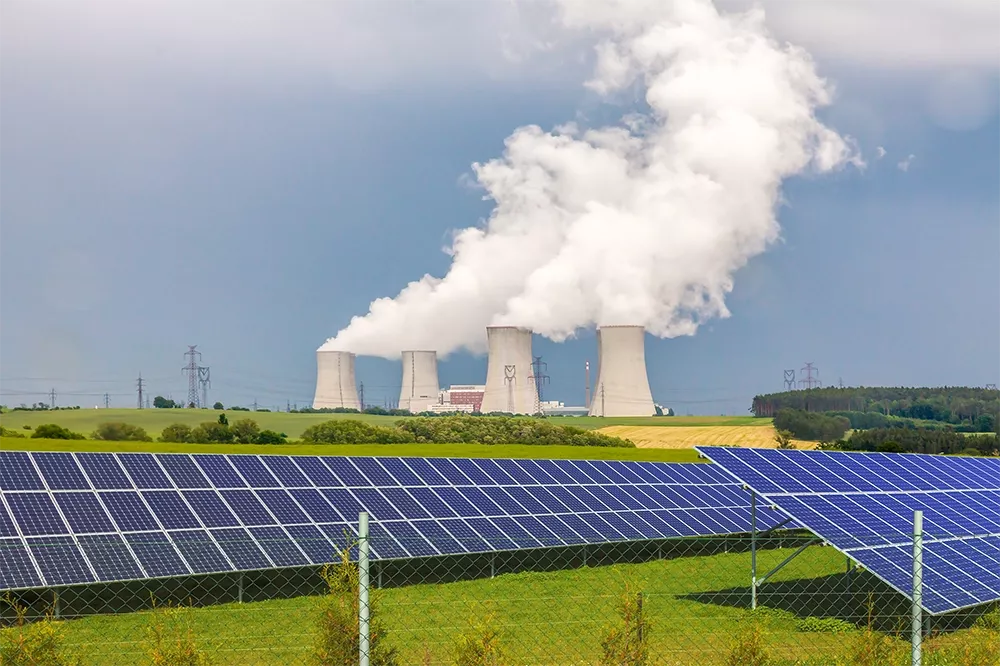According to research by the Environmental Change Institute at the University of Oxford, the answer is no – because not enough was invested in smaller-scale technologies that deploy rapidly and create more jobs.
Alongside France, Germany and South Korea, the UK was an early leader in targeting its recovery spending on low-carbon technologies and infrastructures. The four countries between them invested £73 billion of public money in 2020 across 93 different funding programmes. With economies emerging from lockdowns, the emphasis for low-carbon investment choices should have been on speed, jobs, and distributing benefits widely. This means smaller-scale, granular technologies like solar panels, electric vehicles, and electrolysers rather than larger-scale facilities like nuclear power and carbon capture storage that are slow to build, risky, and with few direct beneficiaries.
Against this technological granularity criterion, South Korea performed well and the UK poorly, with France and Germany in between. The UK stood out in its choice to concentrate a large amount of investment in a small number of low-carbon megaprojects. Almost 25% of its entire low-carbon investment portfolio was spent on technologies costing more than £75 million per unit. For South Korea this was 2%.
Professor Charlie Wilson, co-author of Building Back Better: Granular Energy Technologies in Green Recovery Funding Programmes with Simon De Stercke and Caroline Zimm, said:
This was a unique opportunity to align massive fiscal stimulus with the urgent need to rapidly decarbonise energy systems while creating jobs. But unfortunately, in the UK we didn't fully seize this opportunity."

Professor Wilson, Professor of Energy and Climate Change at the University of Oxford and Leader of the ECI's Energy Programme 'the UK put too many low-carbon eggs in the mega-project basket when investing in post-Covid recovery'.
"With the pandemic thankfully receding in the rear mirror while the climate crisis looms ever larger in front of us, it's worth remembering the oft heard calls from 2020 to 'build back better'. Did we?
"In just four countries - UK, France, Germany, South Korea - £73 billion of public money was mobilised for investment in low-carbon technologies and infrastructures in an effort to align fiscal stimulus with progress on decarbonisation.
"In new research published in Joule, we show how the technological 'granularity' of these national investment portfolios captures multiple desirable characteristics of green recovery. Portfolios weighted towards more granular or smaller-scale technologies and infrastructures are associated with more rapid deployment, with higher employment multipliers, and with more widely distributed social and environmental benefits. Think solar panels, batteries, insulation, electric vehicle charge points, or hydrogen electrolysers… rather than nuclear power plants, carbon capture and storage facilities, heat networks, or high-speed rail infrastructure.
"Of the 93 green funding programmes we analysed across the four countries, South Korea's 'New Deal' portfolio took this granularity lesson most clearly on board by distributing its investments across large numbers of renewable, digital, and efficient energy technologies. At the other extreme, the UK allocated a significant proportion of its funding to energy and industrial technologies with unit costs exceeding hundreds of millions of pounds. Not only do these mega-scale projects have "significant implementation risks and delayed benefits for decarbonization, but they also deliver fewer net jobs and distribute the benefits into fewer hands than more granular alternatives."
So, do these findings put us at a disadvantage compared to countries which took a different approach by focusing on smaller-scale granular technologies?
It's too early to say whether the UK's green recovery spending decisions may bear fruit over the longer-term. But as a more immediate spur to create jobs across the country while staying on track to reach net-zero, other countries invested far more wisely. Let's hope recovery from future shocks is not needed, but if it is, embedding granularity as a low-carbon investment criterion will help us avoid making the same mistake twice."

